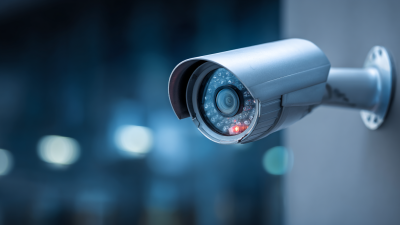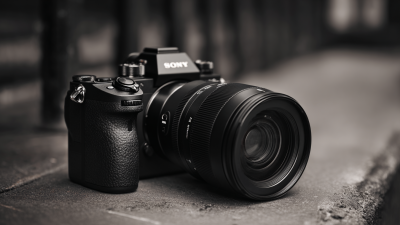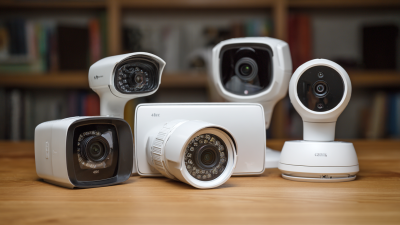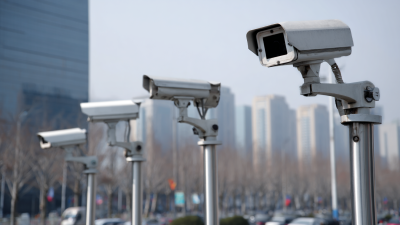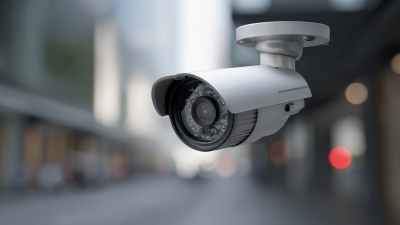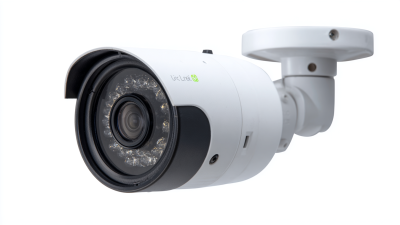In today's world, ensuring the safety of your home has never been more crucial, and one of the most effective ways to bolster your security measures is by investing in a reliable House Security Camera. With a multitude of options available on the market, selecting the right camera for your needs can be overwhelming. This guide aims to simplify the decision-making process by providing you with five essential tips to help you choose your perfect House Security Camera. From understanding the different types of cameras and their features to considering your specific security needs and budget, these tips will empower you to make an informed choice that enhances your home's safety. Whether you're looking for indoor surveillance or outdoor monitoring, a well-chosen security camera can offer peace of mind and protect what matters most.

When assessing your home security needs, understanding the different types of security cameras available is crucial. The market is dominated by various hardware components, reflecting the diverse requirements of homeowners. According to industry reports, IP surveillance cameras have gained significant traction due to their high resolution and remote monitoring capabilities. In fact, the global market for IP surveillance cameras is expected to reach over $30 billion by 2025, emphasizing the growing trend towards advanced home security solutions.
Homeowners should evaluate the specific features offered by different camera types, such as resolution, field of view, and night vision capabilities. For instance, bullet cameras are ideal for outdoor use because of their durability and focus on a single viewing area, while dome cameras are perfect for indoor spaces where discreet monitoring is preferred. Additionally, the integration of smart technology into security cameras allows for enhanced functionalities such as motion detection alerts and cloud storage options. As the hardware sector continues to evolve, staying informed about the latest advancements will help you choose the right security camera for your home.
When selecting the right security camera for your home, resolution is one of the most critical features to consider. According to a report by IHS Markit, cameras with 1080p (Full HD) resolution have become the industry standard, offering clear and detailed images essential for identifying faces and license plates. It's important to note that higher resolutions, such as 4K, are becoming increasingly accessible, providing even finer details but at a higher storage cost and bandwidth requirement. Thus, balancing your need for clarity with your network capabilities is key.

Another crucial feature is the field of view (FoV), which determines how much area the camera can monitor. Cameras with a wide FoV, typically 120 degrees or more, can cover larger spaces without needing multiple cameras. A study by the Security Industry Association noted that homes with cameras covering wider angles experienced a 50% reduction in burglary incidents. Lastly, night vision capabilities are essential for 24/7 monitoring. Many modern cameras utilize infrared technology to provide visibility in low-light conditions. A report from MarketsandMarkets highlights that the demand for night vision surveillance has surged by 28% over the past three years, further emphasizing its importance in achieving comprehensive home security.
When choosing a house security camera, one of the key decisions involves selecting between wired and wireless options. Wired cameras typically offer a more stable connection and are less susceptible to interference, making them a reliable choice for continuous monitoring. According to a report from Security Sales & Integration, wired systems can have a lifespan of up to 20 years, providing peace of mind for homeowners who prioritize long-term investment.
On the other hand, wireless cameras are appreciated for their flexibility and ease of installation. The global market for wireless security cameras is projected to reach $7 billion by 2026, driven by advancements in technology and consumer preference for DIY solutions. However, they can be vulnerable to signal disruptions, and potential hackers may exploit their connectivity. It’s essential to ensure robust security measures are in place when installing wireless systems, such as enabling WPA3 encryption and regularly updating firmware to protect your home from potential threats. Understanding the pros and cons of each option will help homeowners make an informed decision tailored to their specific needs.
When selecting a house security camera system, understanding the costs involved is crucial for effective budgeting. According to industry reports, the average price of a standalone security camera ranges from $100 to $500, depending on features such as resolution, field of view, and night vision capabilities. Additionally, a comprehensive security camera system, which may include multiple cameras and additional components like a DVR or cloud storage, can run anywhere from $200 to over $1,200, illustrating the price range you should expect.
Installation costs also play a significant role in your overall budget. Professional installation can cost between $100 and $300, while DIY systems can save you this expense if you feel comfortable setting everything up yourself. Furthermore, ongoing costs, such as monthly fees for cloud storage or monitoring services, can range from $5 to $50 per month. A thorough evaluation of your needs, coupled with a clear understanding of these average industry prices, will help you create a budget that ensures you invest wisely in the security of your home.
When selecting a house security camera, understanding the landscape of top brands is crucial. Professional ratings often reveal valuable insights into the performance and reliability of various models. Brands like Arlo, Ring, and Nest consistently receive high marks for their advanced features, user-friendly interfaces, and overall effectiveness. Professional reviewers often highlight factors such as video resolution, night vision capabilities, and ease of installation, making it easier for consumers to make informed decisions.

Customer feedback complements professional evaluations, providing real-world experiences that can influence your choice. Many customers commend the reliability of brands like Hikvision for their robust build and long-lasting performance, while others appreciate the intuitive mobile apps offered by brands such as Eufy. It's essential to sift through these reviews, looking for common themes regarding customer service and warranty support, as these factors can be as important as the technical specifications. Ultimately, by combining professional ratings with genuine customer insights, you can pinpoint the camera that best meets your security needs.
